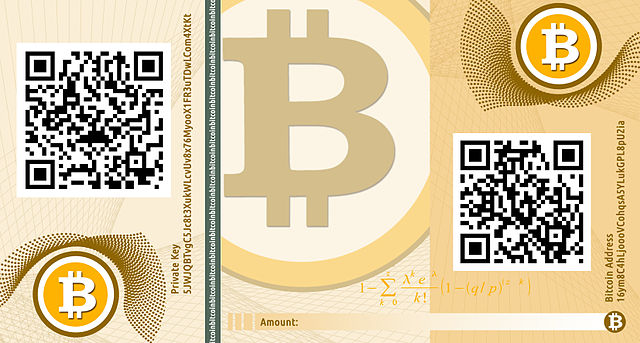By Richard S. Grossman
Within months of being introduced in 2009, enthusiasts were hailing bitcoin, the digital currency and peer-to-peer payment system, as the successor to the dollar, euro, and yen as the world’s most important currency.
The collapse of the Mt. Gox bitcoin exchange last month has dulled some of the enthusiasm for the online currency. According to bitcoincharts.com, the price of bitcoin, which had peaked at over $1100 in December, tumbled to about half of that in the wake of the Mt. Gox failure, leading a number of commentators to suggest that bitcoin is finished.
Others remain bullish on the currency, arguing that the collapse will lead to greater scrutiny of the system and the reemergence of a stronger, more secure bitcoin. Although the price of bitcoin has declined since the Mt. Gox collapse and volatility remains high, rallies are not unheard of. On 3 March 2014, for example, bitcoin began the day trading around $580 and peaked at over $700 before falling back into the upper $600s (data from bitcoincharts.com).
I have argued elsewhere that if bitcoin were to replace the leading world currencies, the results would be catastrophic. The most important objection is that—when it works according to plan—bitcoin mimics the gold standard. The total number of bitcoins that can be created (“mined” in bitcoin terminology, just to maintain the image of gold) is fixed and cannot be altered. Adopting a bitcoin standard would make it virtually impossible for central bankers to undertake aggressive monetary measures—as the Fed and European Central Bank have done—to bolster a flagging economy and a financial system on the point of collapse.

Another public policy downside of bitcoin is that because it is peer-to-peer, without a centralized monitoring authority, it allows funds to be transferred away from the prying eyes of government. This famously came to light last fall when the on-line drug bazaar Silk Road—which conducted much of its business in bitcoin–was shut down by the FBI and its proprietor arrested on drug and computer charges. Needless to say, the attractiveness of a payments system like bitcoin to criminals and terrorists should dampen the fervor of even the most enthusiastic bitcoin devotee.
Is there anything to like about bitcoin?
Yes. Bitcoin—or, more precisely, a system with some of bitcoin’s attributes—would give a boost to commerce.
Moving money with bitcoin is cheaper than using PayPal, credit cards, or bank transfers, all of which charge one or both parties fees. The savings on international transactions are even greater, since these transactions, when carried out with traditional currencies, typically involve both higher fees for moving the money as well as additional charges for converting form one currency to another. Denominating the transaction in bitcoin eliminates the currency conversion fee altogether.
Eliminating fees associated with commercial transactions is the most compelling argument in favor of bitcoin, as anyone who has ever used a credit card overseas, tried to transfer money, or used an out-of-network ATM will attest. The disadvantages of bitcoin far outweigh its benefits. Still, its ability to facilitate cheaper trade is appealing. The sooner someone figures out how to adopt that aspect of bitcoin for safer, more adaptable traditional currencies, the better for all of us.
Richard S. Grossman is Professor of Economics at Wesleyan University and a Visiting Scholar at the Institute for Quantitative Social Science at Harvard University. He is the author of WRONG: Nine Economic Policy Disasters and What We Can Learn from Them and Unsettled Account: The Evolution of Banking in the Industrialized World since 1800. His homepage is RichardSGrossman.com, he blogs at UnsettledAccount.com, and you can follow him on Twitter at @RSGrossman. You can also read his previous OUPblog posts.
Subscribe to the OUPblog via email or RSS.
Subscribe to only business and economics articles on the OUPblog via email or RSS.
Image credit: Bitcoin banknote by CASASCIUS. Creative Commons License via Wikimedia Commons.
The post Something to like about bitcoin appeared first on OUPblog.


